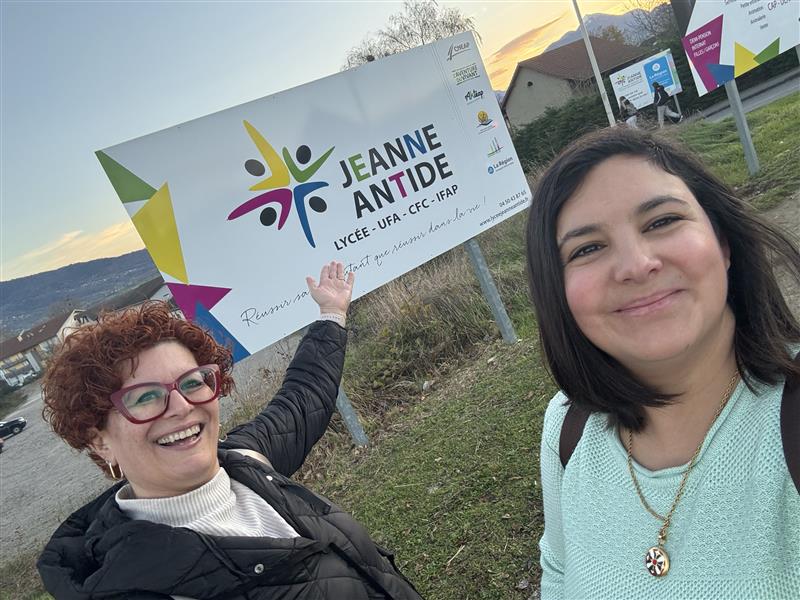
05 Dec Educational Structure and Practices at St Jeanne Antide – Reignier-Esery
The school, operating under the Ministry of Agriculture, serves approximately 300 students aged 12 to 19. It was originally established to teach girls home care skills and boys agricultural work. Over time, the school has evolved to focus on creativity and hands-on learning while maintaining its agricultural roots. Many of its students face significant challenges, with 40% disliking traditional schooling due to past experiences and 20% dealing with serious family issues. To address these needs, the school provides a hostel accommodating up to 100 students, allowing them to stay overnight when necessary.
The school aims to prepare students for the workforce, particularly those who struggle in mainstream education.
Its curriculum is based on the National Curriculum but is adapted to include practical and vocational elements. Students complete a regional baccalaureate, with assessments spanning two years, culminating in written and oral exams in French, technical subjects, history, and geography. Small class sizes, typically 11 to 12 students, enable personalized attention, fostering better learning outcomes.
Support for students with special educational needs (SEN) is a significant aspect of the school’s ethos. It primarily caters to general learning disabilities such as dyslexia and dyspraxia. Support measures include extra time for exams, reader assistance, and one-on-one sessions ranging from 6 to 12 hours per week. However, the school does not accommodate severe disabilities such as autism or severe learning difficulties, focusing instead on students who can function independently. A calming space called the Chalet is available for students needing time out or emotional support, and it also serves as a secure storage area for medication. Despite these efforts, inclusion remains a challenge due to limited staff availability, especially in managing students with ADHD and other behavioural needs.
The teaching staff operates with a clear division of roles. Educators, distinct from teachers, manage non-teaching responsibilities such as contacting families, collecting papers, and addressing student problems. Teachers typically work 18 hours per week in full-time roles, though vocational educators may teach up to 26 hours. The school also supports adult learners, with around 50 individuals participating in various programs.
Vocational training is central to the school’s mission, integrating practical agricultural experiences. Students work with local vineyards, learning to grow, harvest, and sell wine, equipping them with valuable skills for future employment. Many students transition directly into the workforce after completing their studies, reflecting the school’s focus on career readiness.
The ethos of the school is rooted in the principles of Saint Jeanne Antide, emphasizing care for vulnerable students. While it aligns with these values, the school does not promote religion, consistent with French secularism. There are no religious symbols in classrooms or public spaces, and religious instruction is absent from the curriculum. Instead, students receive civic education to develop their understanding of societal responsibilities.
Discipline within the school is firm yet balanced. Classroom doors are locked after lessons, and mobile phones for younger students are collected at the start of the day at 08:30 AM and returned at 4:00 PM. Older students are asked to leave their phones in special pockets hung in each class. Teachers may leave the school when they do not have lessons but require special permission to attend personal appointments during class hours. All students dine together, with meals prepared by an in-house chef, fostering a sense of community. Students do not need to be supervised when a teacher is not present but if they are unsupervised they are asked to go to the student common room.
The school provides comprehensive education until the age of 15, after which students choose between vocational training and further academic studies at a lycée. The institution also facilitates continuous assessment, with tests throughout the year complementing the final exams. While the school faces challenges in inclusion and resource allocation, its focus on small class sizes, hands-on learning, and personalized support creates a nurturing environment for students to thrive academically and personally.














